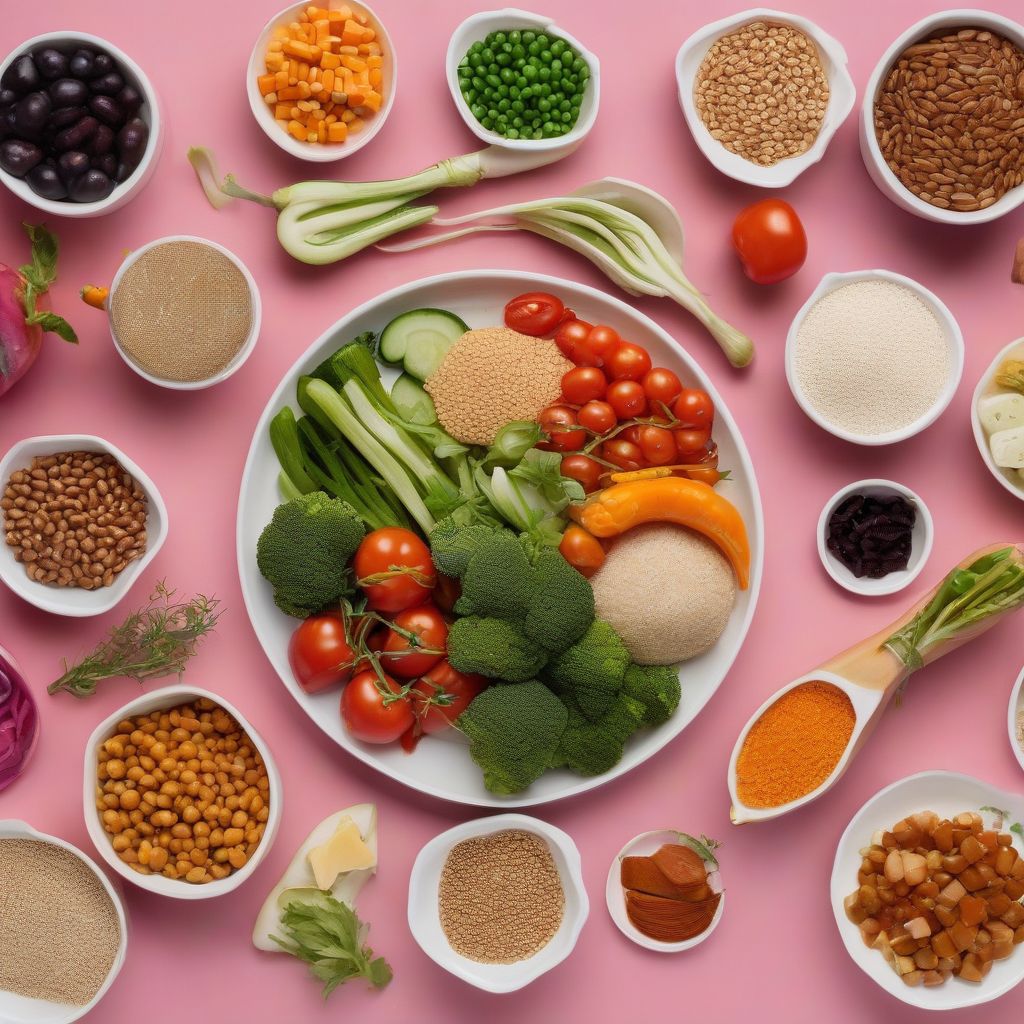Have you ever felt overwhelmed by all the conflicting nutrition information out there? You’re not alone! Starting your journey towards healthier eating habits can feel like deciphering a foreign language. But what if I told you that making sustainable changes to your diet doesn’t have to be complicated?
This guide will provide you with the foundational knowledge you need to begin making healthier food choices. We’ll cover the basics of a balanced diet, practical tips to implement these changes in your daily life, and address common questions beginners have about nutrition.
Understanding the Fundamentals: What Does a Balanced Diet Really Mean?
Imagine your plate as a pie chart. For optimal health, aim to fill it with:
- Fruits and Vegetables (1/2 plate): Packed with essential vitamins, minerals, and fiber, these should make up the largest portion of your meals. Think vibrant colors and variety!
- Whole Grains (1/4 plate): Choose whole-grain bread, brown rice, quinoa, or oats for sustained energy and fiber.
- Lean Protein (1/4 plate): Chicken, fish, beans, lentils, tofu, and low-fat dairy provide the building blocks for your cells.
 A healthy, balanced plate
A healthy, balanced plate
Simple Steps for Beginners:
1. Hydrate Right:
Water is essential for countless bodily functions. Aim to drink half your body weight (in pounds) in ounces of water daily.
2. Prioritize Whole Foods:
Opt for minimally processed foods closer to their natural state. Think fruits, vegetables, whole grains, lean proteins, and healthy fats.
3. Read Food Labels:
Pay close attention to serving sizes, calories, added sugars, and unhealthy fats. Learning to decipher food labels empowers you to make informed choices.
4. Cook More Often:
Cooking at home gives you control over ingredients and portions. Start with simple recipes and gradually experiment with new ones.
5. Listen to Your Body:
Pay attention to your hunger and fullness cues. Eat when you’re genuinely hungry and stop when you’re comfortably satisfied.
Addressing Common Questions Beginners Ask:
1. “Do I need to cut out all carbs to lose weight?”
No! Carbohydrates are your body’s primary energy source. Focus on choosing complex carbs like whole grains and fruits over refined carbs like white bread and sugary drinks.
2. “Are all fats bad for me?”
Healthy fats are essential! Include sources like avocados, nuts, seeds, and olive oil in your diet.
3. “What about cheat meals?”
It’s okay to indulge occasionally! Depriving yourself completely can lead to unhealthy cravings and binging. Aim for a balanced approach.
4. “I don’t have time to cook. How can I eat healthy?”
Plan ahead! Meal prepping on the weekends, utilizing leftovers, and opting for quick and easy recipes can make healthy eating more manageable.
Small Changes, Big Impact:
Remember, making sustainable changes takes time. Focus on incorporating one new healthy habit at a time. Don’t get discouraged by setbacks; view them as learning opportunities. Every small step you take contributes to a healthier, happier you!
Conclusion:
Starting your nutrition journey can be exciting and empowering. By embracing the fundamentals of balanced eating and incorporating simple, sustainable changes into your lifestyle, you can pave the way for long-term health and well-being.
What healthy habit are you most excited to implement today? Share your thoughts in the comments below!
[amazon bestseller=”Nutrition for Beginners”]
